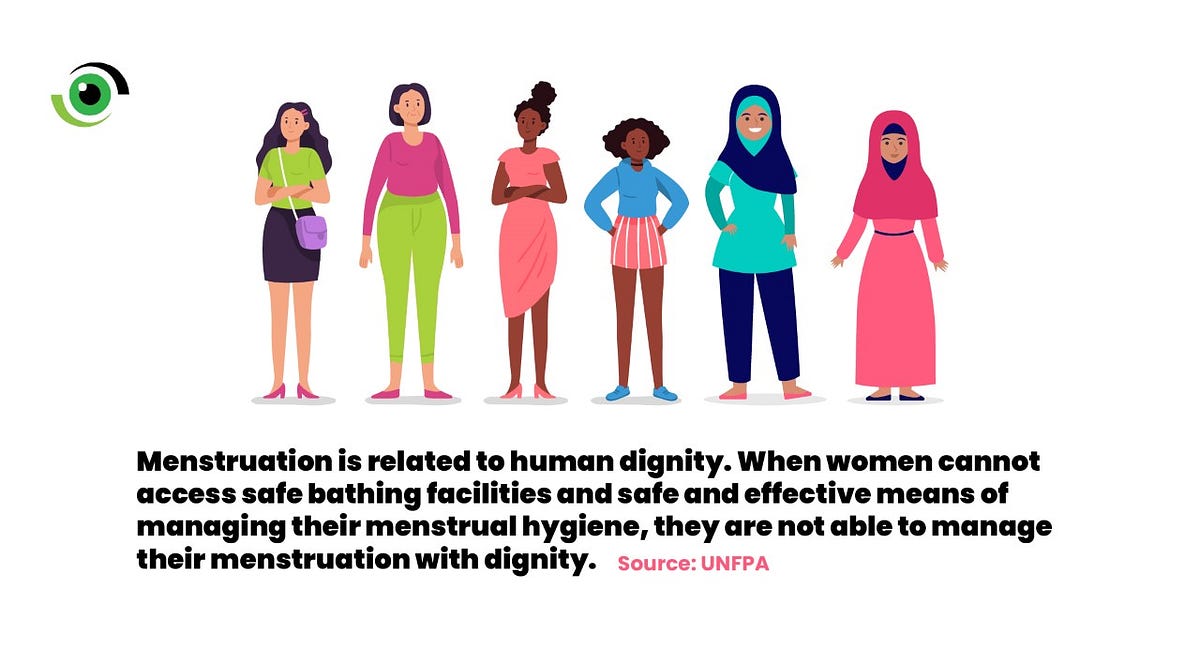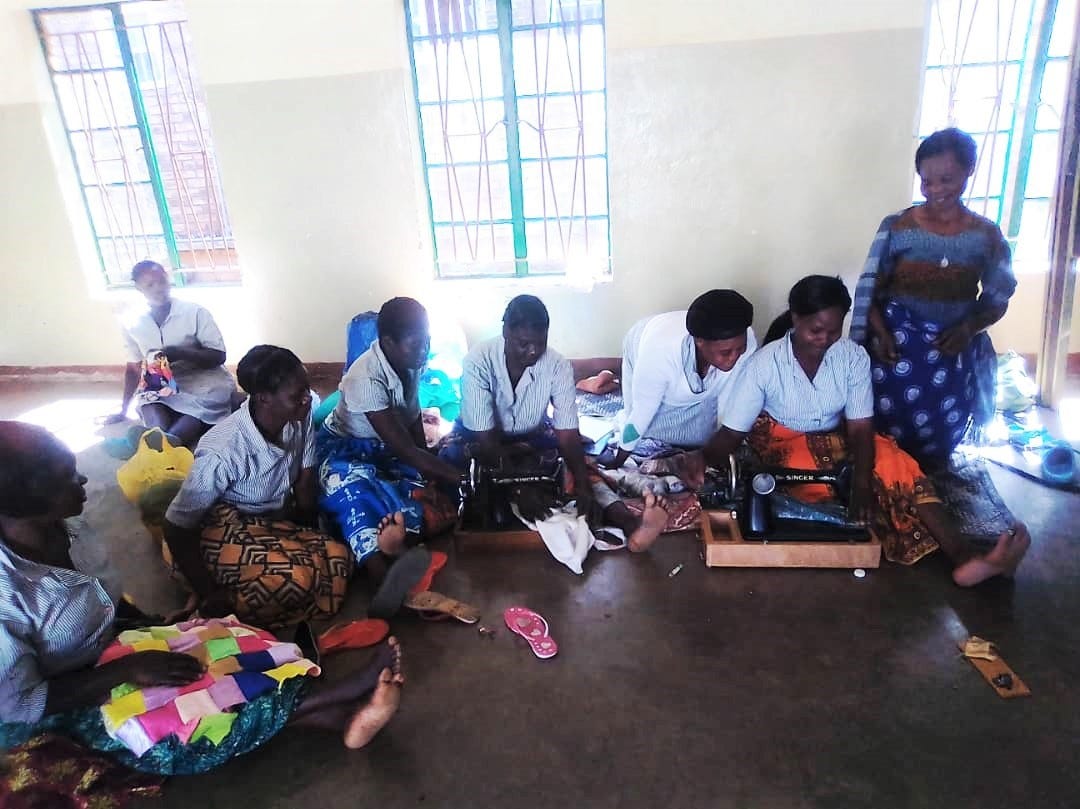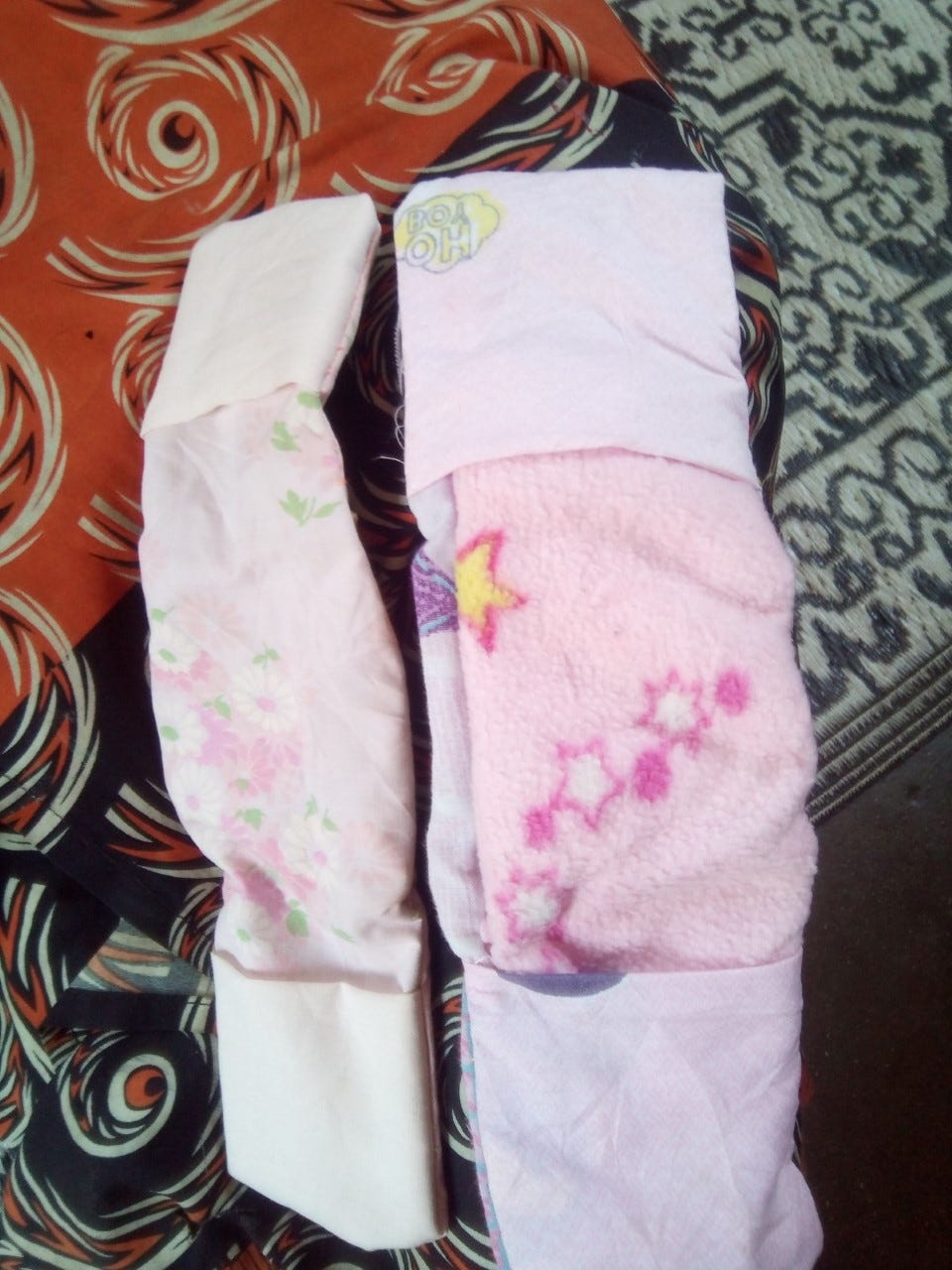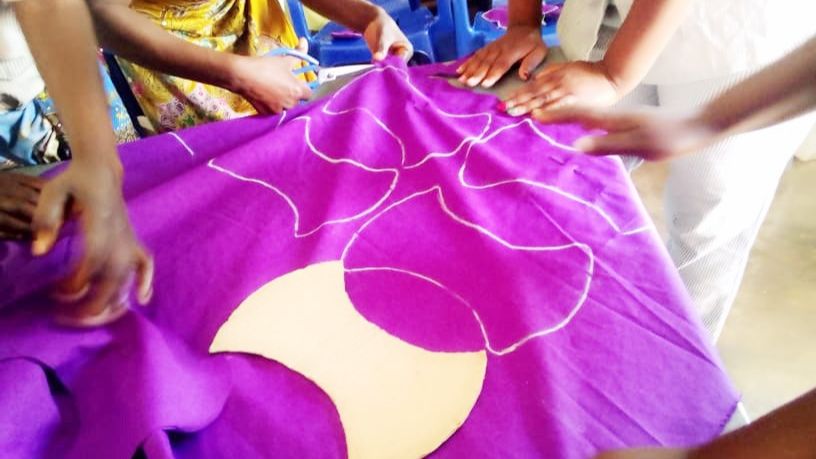By Josephine Chinele
A sanitary towel is a basic need for every girl and woman and must be available to them when they need it. But where there is no access to sanitary towels due to financial hardship, women and girls in low resource settings like Malawi have learnt to value the dual functions of a piece of cloth as a panty liner and sanitary towel.
Menstrual hygiene in prison is a luxury
Menstrual hygiene had been a burden for 44-year-old Joyce since her imprisonment 18 years ago. Joyce was convicted of murder in 2003 and sentenced to 30 years in prison with hard labour. She has been incarcerated in Chichiri Prison in Blantyre since then. Disposable sanitary towels are more hygienic as one bins the soiled towel once it is full, but they are expensive for inmates, she admits. However, repurposing cloth for menstruation is an issue inside the prison as in most cases, the cloth pieces or underwear are not enough. “It’s a luxury for one to keep changing, so one ends up staying with one piece for long or just swapping the soaked piece with another clean one, but may be wearing the same partly soiled underwear,” said Joyce. On average, a woman needs two packets of sanitary pads worth K1, 400 ($1.72) to have a comfortable menstruation period.

Little or no funding for menstrual hygiene products
The Prison Service budget for the menstruation sanitary needs for female inmates has been very poor. Centre for Human Rights, Education, Advice and Assistance (CHREAA), a local non-governmental organisation (NGO) raised awareness on menstrual hygiene and advocated for an increase in Malawi’s prison budget for menstrual hygiene for women in detention during the 2019/2020 financial year. Following this, the parliament approved an allocation of K30 Million ($37,000) for the purchase of female inmates’ menstrual hygiene kits. CHREAA Executive Director, Victor Mhango said as much as the organisation is pleased with the allocation, it calls for the service to explore sustainable means of maintaining the inmates’ sanitary hygiene.
After the increased budget allocation, the prison service started providing inmates with sanitary supplies enough for three months but even that is inconsistent. “If they are not available, we understand. If we don’t receive or if we happen to finish what we received earlier, we still use our reusable pads. Like now, it’s been two months since we last received menstrual kits,” said Joyce.
Reusable menstrual pads to the rescue
The Anglican Diocese of Southern Malawi Mothers’ Union members stepped in to provide a sustainable solution to female inmate menstrual hygiene woes by introducing the making of reusable menstrual pads in 2018. This initiative was incorporated in the group’s tailoring and designing training initiative, aimed at economically empowering the prisoners once they are out of prison. The inmates did the training twice a week between 2018 and early 2020. They were also taught how to make dresses and duvet covers.

Retired Union Coordinator, Agnes Mkoko said the group planned to train every female inmate how to make the re-usable pad so that they could in turn mentor new inmates. “We aimed at reaching out to all female inmates with the initiative. We only reached out to 20 inmates because along the way, some were transferred to other prisons while others just decided to withdraw for personal reasons,” she said
“We initially used needles but another group within our church gave us two hand sewing machines to aid our initiative,” Mkoko added. The materials used to make the reusable pads include tape measure, cartons, synthetic fabric (flannel), polyester cloth, cotton cloth, fabric markers, sewing threads, needles, holding pins and scissors. According to Mkoko, these materials are donated by church members and well-wishers from the United Kingdom.
Malawi Prison Service Gender Coordinator, Ellen Banda said the service was unable to provide sanitary supplies due to financial constraints. “The situation is better now after parliament’s approval for additional funds, we are able to provide sanitary kits quarterly. The service is planning on having a fully-fledged sustainability program of having all women inmates on reusable sanitary pads making training,” she said.

According to Banda, following the re-usable pad interventions by Anglican women and Youth Net and Counselling (YONECO), a local youth serving NGO that is implementing programs that respond to the social economic challenges affecting youth, women and children, at least 30 percent of female inmates in prisons around the country have learnt how to make re-usable sanitary pads, “We wanted to reach out to all female inmates with this intervention, but COVID-19 disrupted us,” Banda added.
Restoring menstrual dignity
“After the training, we were able to make at least two re-usable pads for every female inmate here. Although they are not enough, they are better than the pieces of cloth we have been using,” said 33-year-old Chrissy who is serving a 14-year sentence.

She called on more well-wishers to donate the materials needed for them to continue making the re-usable pads as they await more sessions with the Anglican women once they are cleared to resume training. The sewing machines are lying idle at Chichiri prison owing to a lack of materials since the trainings were suspended in April 2020 due to the COVID-19 pandemic. “We urge prison authorities to consider authorising the Anglican women and other interested groups to re-open the training, we need to make more pads,” Chrissy stated.
Although the initiative has been somewhat successful in plugging this crucial gap, there are several challenges, one of which is in the sourcing of training material. Depending on the goodwill of strangers to provide materials for the trainings is not a sustainable practice and Makoko agrees.
“Funding is also a major setback for such an initiative to fully succeed. Limited funding has delayed my plans to train female inmates,” said Grace Ng’ambi, founder, Focus Action Results (FAR). FAR, a group established to make re-usable pads for schoolgirls and female inmates will in October 2021 begin re-usable sanitary pad-making training with the aim of reaching out to 100 female inmates country-wide.

Malawi has 27 prisons across the country, but none exclusively for female inmates. Gender Coordinator, Ellen Banda said this current arrangement doesn’t allow for female inmates to utilise available opportunities. “The Malawi Prisons Service is planning to have a special prison for female inmates where they can fully benefit from the reformation and rehabilitation programs which includes the making of re-usable sanitary pads,” she said.
The lack of access to menstrual products in prison facilities is widespread. The shame of not having access can have ripple effects and may further compound the trauma women experience when they are incarcerated. Every woman’s sexual reproductive health and rights are important, no matter where she is. These interventions are restoring the dignity of female inmates who have long suffered the indignity of going without menstrual management material during their menstrual period. Besides being cheaper — re-usable pads are cost effective and could be used for a year or more — learning to make re-usable pads empowers female inmates and creates a livelihood option for them when they leave the prison. Such a programme could also empower women in other settings where access to sanitary towels is out of reach, due to financial constraints.


